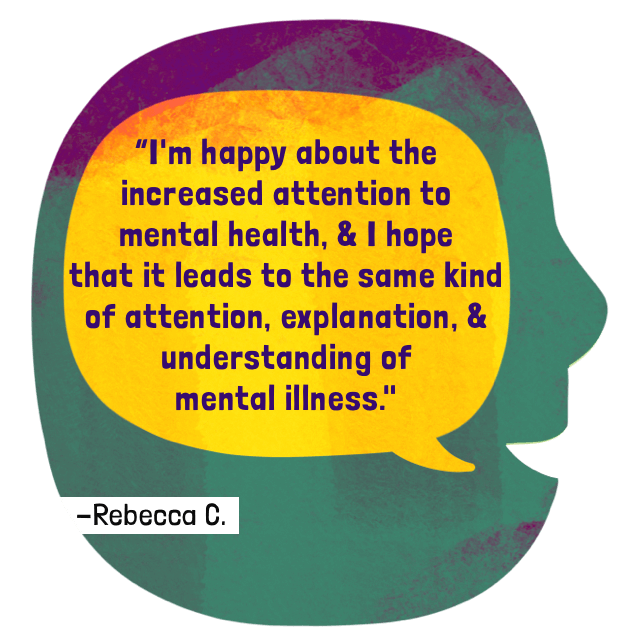Mental Health vs. Mental Illness
In the past 10 years, the topic of mental health has gotten much more common in conversations, in the media, and with celebrities.
Mental health has a growing platform
We've heard from singers like Sinead O'Connor and Lady Gaga, to name just a couple. We've seen athletes like Simone Biles take a break to protect and take care of their mental health.
With their sizeable public platform, these highly visible people are a critical advocacy piece for those with mental health struggles. Lifting their voices and sharing their experiences make it easier for other people who are not famous to talk about or seek help for their mental health. It's excellent that hearing about something that used only to be whispered about is now a national conversation.

Almost every day, I read something about mental health in publications, from the New York Times to women's magazines. Although mental health is something all people have, mental illness is not.
"Self-care" won't cure mental illness
Often, the media uses the term "self-care" to describe what all of us can do to protect our mental health. It has become a catch-all term for everything from getting a manicure to enjoying a bath bomb or binge-watching a comfort show.
Although we have come a long way in discussing practices for better mental health, we are a long way from regularly discussing severe mental illness. Although "self-care" may be helpful to wind down from a difficult day at work or take a break from your kids, what is considered "self-care" for many people would not be beneficial in helping someone out with symptoms of mania, psychosis, hallucinations, etc.
Schizophrenia is still very misunderstood
Almost everyone could, if asked, describe one or more habits for protecting mental health. The same is not valid for, say, schizophrenia or bipolar disorder.
As someone who lives openly with schizophrenia, people might be surprised to learn that many people still believe it is the same as dissociative identity disorder (what we used to call multiple personalities). The confusion about these 2 different diagnoses is one small example of the misunderstanding about schizophrenia and mental illness.
Glad to see the discussion progress
To those of us with a severe mental illness, it is great to see more discussions about mental health because, for us, the hope is those discussions will break down some stereotypes and barriers to employment, and dismantle the stigma around some diagnoses.
Even though we are seeing more movies and books with characters with severe mental illness, the exposure is still not enough to change many people's perceptions of mental illness diagnoses like schizophrenia.
Mental health vs. mental illness
It is as if 2 separate things are happening in these conversations about mental health that are much more prevalent than ever. For people who want to take care of their mental health, the doors are wide open to talk about self-care and steps to rest, relax, rejuvenate, and stay well.
But for those of us with severe mental illness, there is far less information about the type of care we need, treatment, and explanations of what our illnesses entail and how they play out in our everyday lives.
I'm happy about the increased attention to mental health, and I hope that it leads to the same kind of attention, explanation, and understanding of mental illness. More information and representation would be a win for everyone who deals with the stereotypes and stigma of a misunderstood diagnosis.
